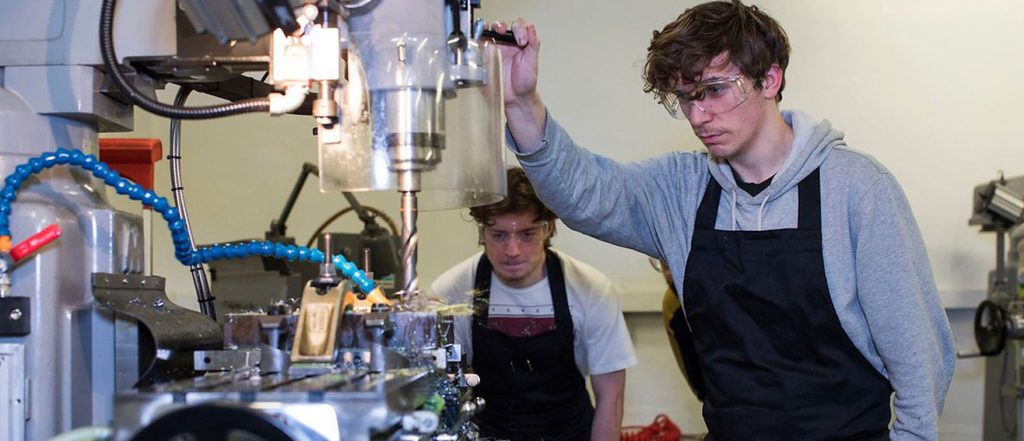BEng (Hons) Mechanical Engineering

Overview
Everything that moves
Mechanical engineers work in almost every sector you can think of – energy, transport, aviation, robotics, pharmaceuticals and the motor or marine industries. Wherever you want to go, a degree in mechanical engineering can help to get you there. Our course is practical, with substantial laboratory and workshop activities. And your individual final-year project will be a ‘design-make-test’ project that simulates the tasks and challenges mechanical engineers face.
We offer the opportunity for all undergraduate Home/EU students to undertake a work placement, internship or work experience while studying a full-time course starting in September 2020.
Why Mechanical Engineering at LSBU?
- Ranked 1st for student experience and teaching quality in the UK (Sunday Times Good University Guide 2020).
- Professionally accredited by the Institution of Mechanical Engineers.
- Make use of our stand-out facilities, like our virtual engineering lab and 3D printing.
- European study: spend your third year studying with our partner institution, Hochschule Bremen, in Germany.
- Work experience: complete your third year in a paid professional work placement.
- No. 1 London modern uni for graduate prospects in Mechanical Engineering (Complete University Guide 2019).
- Ranked 3rd for overall student satisfaction, Mechanical Engineering (National Student Survey 2019).
Modules
As a BEng degree programme, this course develops a deep understanding of the essential facts, concepts, theories and principles of mechanical engineering and its underpinning science and mathematics.
We’re hands on, practical and applied. That’s why you can expect ‘design-make-test’ projects to feature throughout your degree, not just at the end!
Prepared for modern engineering practice
In reality most engineers will find themselves working side-by-side in multi-disciplinary project teams. One of the greatest professional assets that you can have is the ability to function well in this team set-up. That’s why some of our modules are shared across all our engineering courses. These modules help you understand the commercial priorities that shape engineering practice – and guest lecturers from world-renowned companies, such as Rolls-Royce, have lectured on them.
Methods of assessment for course overall: 42% coursework.
Year 1
- Engineering mathematics and modelling
- Introduction to mechanical engineering
- Thermofluids and Dynamics
- Introduction to Electrical Engineering
- Design and Practice
- Engineering Computing
Year 2
- Advanced engineering mathematics and modelling
- Engineering design
- Solid mechanics and FEA
- Dynamics and control
- Thermofluids and sustainable energy
- Machine drives and mechatronics
Year 3
Optional placement year
Year 4
- Manufacturing systems and materials technologies
- Dynamics and systems modelling
- Innovation and enterprise
- Thermofluids and turbo machinery
- Individual project
Entry requirements
2018 Entry
- A Level BBB or;
- BTEC National Diploma DDM or;
- Access to HE qualifications with 24 Distinctions and 21 Merits including 3 Distinctions in Maths and 9 Merits in Physics or;
- Equivalent level 3 qualifications worth 122 UCAS points
- Level 3 qualifications must include Maths or Physical Science
- Applicants must hold 5 GCSEs A-C including Maths and English or equivalent (reformed GCSEs grade 4 or above).
We welcome qualifications from around the world. English language qualifications for international students: IELTS score of 6.0 or Cambridge Proficiency or Advanced Grade C.
Advanced entry
If you have already completed some studies at another university, we may be able to consider you for advanced entry. Please see our advanced entry page for more information.

